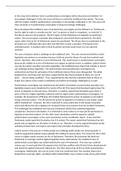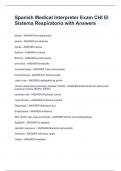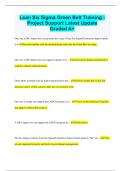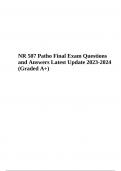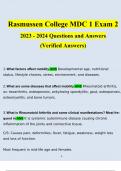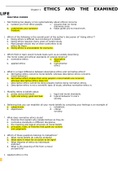Essay
Essay on Challenges of the traditional view on parliamentary sovereignty.
- Module
- Public law
- Institution
- The University Of Essex (UoE)
This essay was written by me and it explains some of the challenges on Parliamentary soverignty such as: -meaning of p.s -eu law -devolution -cases -judicial review -the traditional view, and how it is viewed by judges -concludes on whether Parliament is still soverign
[Show more]
